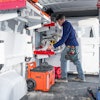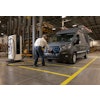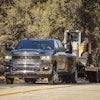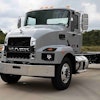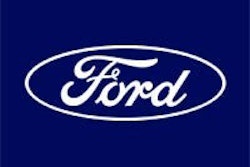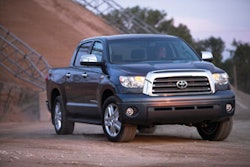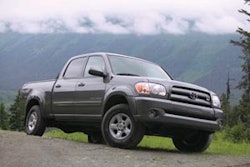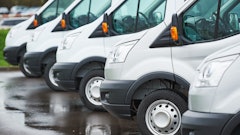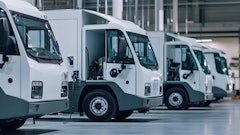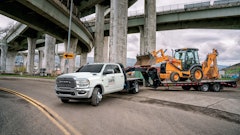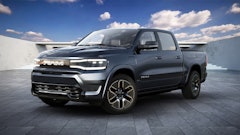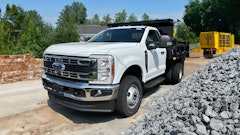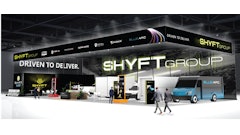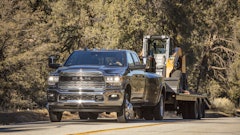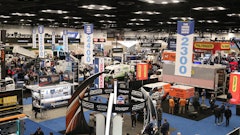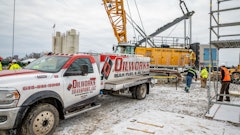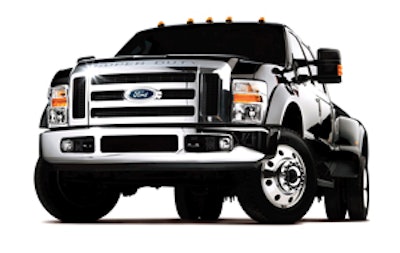
The 2007 model year ushers in a new era of diesel engine technology. The previously established image of diesel engines as noisy and dirty will be radically altered as new NOx and particulate emissions standards set by the EPA go into effect.
Every diesel-powered vehicle that operates on the road will be affected. "If it has four wheels and it runs on public roads, it is going to have to have a diesel particulate filter," says Steve Matsil, vehicle chief engineer - medium-duty commercial trucks and full-size vans, General Motors.
In addition, increased use of exhaust gas recirculation (EGR) - with larger EGR coolers, closed crankcase ventilation and more complex ECUs and sensors to control regeneration of the particulate filter - means the diesel engine has become a lot more sophisticated.
But the basic fundamental advantages of the diesel engine remain. They offer a longer service life and, under certain conditions, you can see up to a 30 percent increase in fuel economy. And while gas engines often boast higher horsepower ratings, it is the torque that is important when towing heavy loads.
The choice between gas and diesel often boils down to purchase price vs. cost of ownership. Diesel engines have traditionally been more expensive than gas alternatives, and this is not likely to change. The higher operating pressures require stronger blocks; turbochargers, intercoolers and high-pressure injection systems also add to the cost. And now, there are the further costs of aftertreatment systems.
But not every diesel-powered vehicle will see a price jump this year. Several pickup manufacturers have indicated there will not be a major cost increase. The cost of this technology can be spread across the entire pickup truck line, with the volume translating into almost no change in price. The low-volume medium truck business, however, may see some significant price increases.
Pickups and light-duty
The popularity of diesel engines in pickups has increased dramatically over the last 10 years. "When you look at our lineup, especially the Dodge Ram 2500/3500, our mix is about 85 percent diesel and 15 percent gas," says Stephen Williams, senior manager of Ram vehicle development and synthesis, DaimlerChrysler.
Purchase price often takes a back seat to ownership cost. "Most diesel owners buy diesels for the added capability and the overall cost-of-ownership equation," says Tom Aubrey, F-Series Super Duty marketing manager, Ford.
"There are many variables that commercial truck customers take into account, but the primary factor is the cost of ownership over the life of the vehicle," says Todd Kaufman, F-Series chassis cab marketing manager, Ford. "This cost is influenced by the price of the engine and fuel and maintenance costs. The cost per gallon of diesel fuel has increased slightly more than gas over the last year. So from that perspective, the cost of operation has increased a bit."
"For many customers and applications, Ford's 6.8-liter V10 is a strong alternative to a diesel," says Aubrey. It has more horsepower than the diesel engine. "However, for customers needing more torque, primarily for towing, the Power Stroke diesel offers an extra 108 lb.-ft. over the V10." This is significant when you consider that 90 percent of Super-Duty customers tow. "We do not expect a major shift in demand for our Super-Duty or heavy-duty diesels."
With current fuel prices, efficiency is a major concern. "All things equal, under load, the diesel is going to get better mileage when you are towing or hauling payloads," says Williams. "Under load, it is going to get similar mileage as it will unloaded, where the gas engine is probably going to degrade pretty significantly once you load it up."
The traditional driveability differences between gas and diesel engines have also dramatically narrowed, expanding the acceptance of the diesels. "As the diesel refinement gets better, we think it could shift even further in that direction," says Williams. "The level of refinement has definitely gone up on the engines. For a lot of people who have not considered one in the past, they are a good daily driver, as well. In the past, you would typically get quicker acceleration, more horsepower, more refined performance out of the gas engine. But when you look at the new diesels, I think they trump the gas engine in all of those. They have just as much power as the gas engines and they have a lot more torque. In fact, on the highway, you don't even know they are a diesel."
GM's Matsil agrees, noting, "It is sometimes tough to know what you are driving based on how well we have isolated the engine, its torsional mounting system and fuel injection, including pilot injection. We've done demonstration drives where we had to open the hood and show the Duramax engine to prove there was actually a diesel in there."
The cooling system on the diesel also favors applications where there is a lot of idling or you need to run accessories such as generators. "I may not put a lot of miles on it, and I may not do a lot of heavy towing, but in my vocation I may idle a lot," says Matsil. "Cooling systems for diesels are really designed for performance at the higher horsepower, max heat rejection rate, especially now with the diesel engine and exhaust gas recirculation valves that have a higher percentage of recirculation to control NOx. You need to have a pretty impressive cooling system to be able to dissipate the heat."
As you decrease the horsepower demands, the cooling system has excess capacity. This means a diesel can idle for a long period of time. "I can keep my crew warm when it is cold," says Matsil. With a high-idle feature, you can run a generator or allow your air conditioner to operate optimally.
Medium-duty increases
Medium-duty trucks face unique challenges. The cost of the emissions control technology is going to be higher because of the larger displacement of the engines, plus there is a lower volume of trucks produced to help absorb the development and hardware costs. The speculation is the cost increase will be in the $4,000 to $6,000 range above the price of the engine.
Many applications require the torque produced by diesel engines, but some applications could use either gas or diesel.
"I think there will be more people looking at gas a second time," says Matsil. "We offer the only gas engine in the medium-duty market today, the 8.1 liter. It will do the job from a power and torque standpoint. It is just a matter of settling for a little lower fuel economy."
In addition, the duty cycle has to be properly matched with the gas engine. They do not offer the high torque ratings for towing heavy loads.
But low-mileage applications with relatively light loads are good candidates for a gas engine. "When you put 10,000 miles on a year, the operating expense becomes relatively small vs. the buy-in rate for a diesel above the gas and, on top of that, a premium for '07 emissions. Some people who are on the edge will start to look at medium-duty prices north of $4,000 or $5,000. That may push them to go back to gas in some cases."
But the gas engines will remain a niche product. Matsil explains that an ideal application would be a contractor who tows a skid-steer loader, doesn't need a PTO and has the truck sitting on the jobsite for much of the time. When you get into larger trucks or tow larger loads, there is no alternative to diesel.
Fuel economy tradeoffs
The emissions technologies will have a negative impact on fuel economy in certain applications where the ambient temperature is not high enough or the load is not sufficient enough to light off the oxidizing converter. In these cases, a slight amount of fuel is injected into the cylinders to increase operating temperatures and force regeneration. Matsil reports that in a worst case scenario, fuel economy may decline a couple of percentage points.
But many manufacturers have found fuel-saving innovations to offset the losses. For instance, Dodge is launching a six-speed automatic transmission. "We are going to recapture any losses due to the emissions dosing or soot filters with better gear ratios," says Williams.
General Motors has replaced its traditional engine cooling fan with an electric clutch fan. "We are real close to having a home run here because it will allow the fan to operate only when it has to," says Matsil. "It could offset the increased use of fuel to regenerate and clean your filter."
While the latest advancements have added some complexity to the diesel engine, there is also an upside. Diesels are more efficient, offer comparable driveability and are as clean as gas engines.
